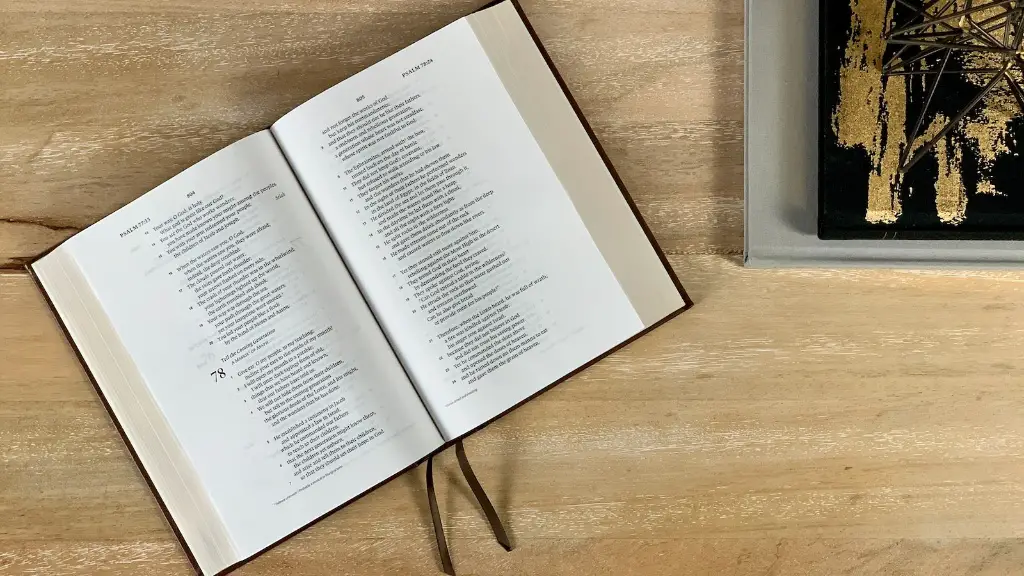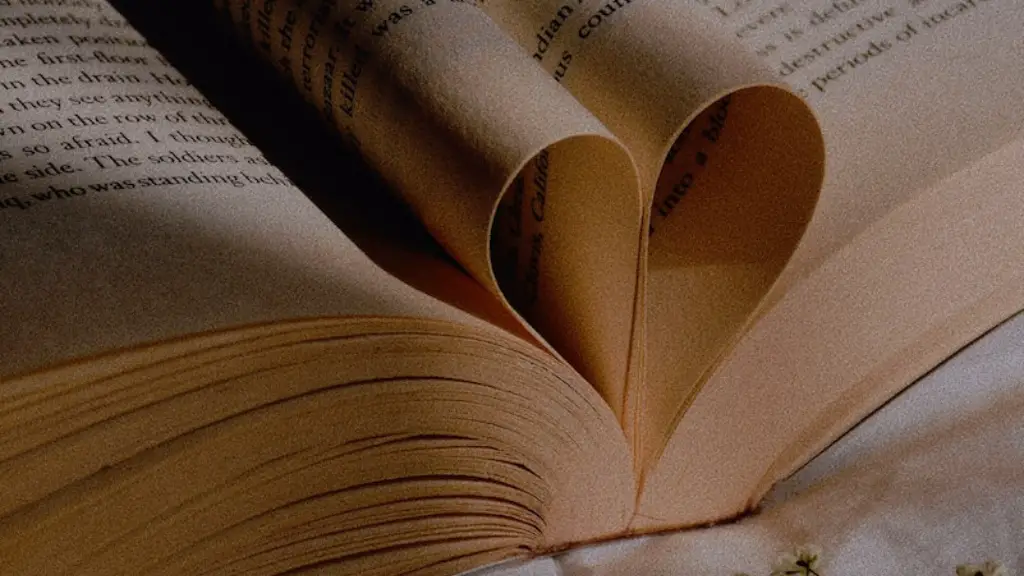Backing and Background
Poetry has been around since the dawn of civilization. It’s been used by many cultures throughout history to express emotion, ideas, and belief. It’s been used as a form of communication, entertainment, and a means to preserve culture and history. In this day and age, poetry is still alive and thriving, and can be found in books, magazines, online, and even on the streets.
While poetry has long been seen as an ancient and dying art form, modern poets are working hard to keep the art alive. More people are writing and reading poetry, especially young people, due to its powerful and emotional lyrics. Additionally, several studies have shown that reading poetry can provide a range of emotional and mental health benefits, including improved communication skills, reduced stress and anxiety, fostered self-expression, increased creativity, and better self-awareness.
Educational Benefits of Poetry
Reading poetry can help to improve language skills in children and young adults. By reading poetry, students can expand their vocabulary, practice reading techniques and develop critical reading skills. Poetry can also open students’ minds to new ideas while challenging them to think more deeply and reflectively.
In addition to improving language skills, reading poetry is said to enhance communication as well. Being able to read and interpret the meaning behind words and expressions can help improve communication by making it easier to understand and respond to others. Reading poetry can also make it easier for readers to express their own feelings.
Being able to express feelings in creative ways can help readers to better process and manage their emotions. Additionally, the imagery and metaphors used in poetry can help readers create a mental image of the poet’s story, allowing them to connect on a more personal level.
Finally, reading poetry can help individuals gain a better understanding of the world around them. By reading the poets’ perspectives, readers can learn to open their minds to different types of thinking and gain a better understanding of topics such as relationships, politics, and history.
Arts Benefits of Poetry
Reading poetry can also have many arts benefits. Poetry can help to spark creativity and develop artistic expression. It can help to improve writing skills in young people by allowing them to experiment with their writing and express themselves in new and creative ways. The use of imagery and metaphors in poetry can also help to fuel the imagination and foster creative thought.
Reading poetry can also open readers to new styles of writing, such as free verse and narrative poetry. By exploring different types of poetry and learning about their unique styles, readers can gain a better understanding and appreciation for the arts and different ways of expressing emotion and ideas through writing.
Finally, reading and writing poetry can help young adults develop their sense of identity. By creating their own poetry, they can explore their values, beliefs, and ideas, helping them to understand and express what’s important to them.
Social and Psychological Benefits of Poetry
Reading poetry can have many social and psychological benefits. For one, it can help to reduce stress and anxiety. The imagery and metaphors used in poems can be used to create a calming visual and provide a sense of comfort and solace. Additionally, reading poetry can provide readers with an escape from their everyday lives, allowing them to focus on their inner thoughts and feelings.
Reading poetry can also foster self-expression and improved communication skills. By developing their understanding and appreciation for the art, readers can learn how to effectively communicate their thoughts and feelings.
Additionally, reading poetry can help to foster a better understanding of the world. By exploring the poets’ voices and perspectives, readers can learn to empathize with the stories they hear and gain a better understanding of other people’s lives.
Finally, reading poetry can also help to cultivate an appreciation for language and the written word. By exploring the language and nuances of poetry, readers can learn to appreciate the beauty and power of words.
Examples of Poetry
There is a wide variety of poetry out there for readers to explore and experience. Popular forms of poetry include rhyming, narrative, epic and free verse. Additionally, there are various types of poem formats, such as haiku, sonnets, and limericks.
One example of a poem that has been around for centuries and is popular to this day is William Wordsworth’s “The Daffodils”. This poem is often praised for its imagery and beauty, and has been a favorite of readers for generations.
Another example is Robert Frost’s “The Road Not Taken.” This poem is often seen as an exploration of the choices we make in life and the uncertainty of the paths we take. It has been beloved by readers of all ages.
These are only two examples of the many forms of poetry writers have created over time. By exploring the vast range of works available, readers can gain an appreciation for the range of emotions and ideas expressed through poetry.
Cultural Benchmark of Poetry
Reading and writing poetry can help provide readers and writers with an understanding of culture and history. Poetry can provide insight into different times and places, allowing readers to gain a better understanding of their past and the stories of those who came before them.
Poetry can also provide readers with different perspectives and cultural experiences. By exploring the works of various authors, readers can gain an understanding of different styles and interpretations of the same topics.
Finally, reading poetry can also help people gain a better understanding of their own culture. By exploring the emotions and ideas expressed by poets from different cultural backgrounds, readers can gain a more holistic understanding of their own culture.
Conclusion of Reading Poetry
Reading poetry can benefit both readers and writers in a number of ways. It can help expand language skills, foster creativity and self-expression, improve communication, and provide an understanding of the world and cultures around us. By reading and writing poetry, individuals can gain a better understanding of themselves, their experiences, and the world around them.





